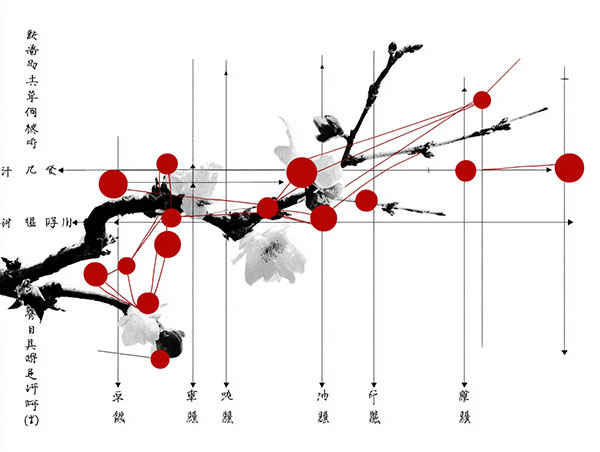Beyond the Map
“There isn't anything except Just This. This is the sacred essence... Just This... is very powerful medicine to combat the sickness of separation, duality, illusion. Just This means no past, no future, nothing else. Just This.”— Lee Lozowick
The traditional Japanese poem form of the haiku has a sparseness and elegance that few other poetic forms carry.
In its English-language version, it consists of three short lines, traditionally with a syllable structure of 5-7-5, though looser forms have begun to emerge. At its best, a haiku contains a quiet surprise—an unexpected twist or redirection of the gaze. Like a snap of the fingers, it calls us back to this moment, right now.
Necklace of diamondsstrung on a gossamer web.
Spider waits, poised.
To write a haiku is an exercise in restraint: stripping language to its essence. Nothing superfluous. Nothing ornamental. Emotional resonance arises not from description, but from immediacy. A haiku doesn’t explain—it points. It says: Look! Listen! It captures the fleeting in a timeless frame.
But this is only the structure. The real magic of haiku lies in the way it uses language to move beyond language. Like an ink brush gliding lightly across a page, it paints a moment in time and then lets it go—leaving a trail of spontaneity behind.
Words become transparent vessels, transmitting a felt sense of life unfolding in real time. The beauty isn’t in the form itself, but in what it reflects—a glimpse of the eternal, shining through the ephemeral.
Candle flames flicker.
Ganesh glows. Light transfixes
pearlescent tulips
Haiku brings our attention home. It gently removes the clutter of future and past and returns us to the living truth of this moment.
We waste most of our awareness on memory or anticipation, clinging to dusty thoughts and mistaking them for reality. But the haiku calls us to presence—not abstract, but vivid. In focusing so intimately on now, it reveals the Real. And that glimpse can be liberating. We taste boundlessness—captured in a flash of form.
This is the paradox: transience becomes the gateway to eternity. The living moment that has no beginning or end. It cannot be divided. It’s simple, fleeting, and vivid—held for an instant in a net of words and then released.
This is the space I try to write all my poems from—not just haiku, but the longer pieces too.
Read:
– Peter Mitchell
Each is an invitation to live more fully here—in the shimmering mystery of
Just This.

Catching The Real in Seventeen Syllables
Sign up for updates, news, reflections, and poems, as well as occasional book or article recommendations from the edges of philosophy, mysticism, and consciousness. After signing up, you’ll receive a welcome email — please click the link to confirm your subscription (and check your spam folder if you don’t see it).

Newsletter Sign-Up
